'Disobey and we will set ablaze your shops': Making sense of 'strikes' in Iran
By Mohammad Homaeefar
The latest three-day “nationwide strike” in Iran ended Wednesday, eliciting a predictably lukewarm response, contrary to expectations of foreign-backed rabble-rousers and despite the full-scale, no-holds-barred hybrid war against the country.
The latest strike came almost three months after riots broke out in Iran in the wake of the unfortunate death of Mahsa Amini. The 22-year-old woman fainted at a police station in the capital Tehran after she was detained for flouting the mandatory Islamic dress code.
She was pronounced dead at a hospital three days later, which sparked anger across the country. President Ebrahim Raisi, who was on a foreign tour at the time, immediately ordered a high-level probe into the incident and judiciary chief Mohseni-Ejei assured justice and accountability.
That, however, wasn't enough as foreign-sponsored rioters quickly swung into action, hijacking a human tragedy to push the nefarious Western agenda of "regime change" in Iran.
As soon as riots broke out, inimical forces operating from foreign lands rushed to call for nationwide strikes, but the calls went mostly unheeded. With the passage of time and rapid escalation in intimidation and coercion tactics, some people felt they had no choice but to close their businesses until the calm was restored.
These “forced strikes,” as many in Iran rightly refer to them, particularly targeted traders and truckers, the two groups most vulnerable to bullying and coercion.
Nevertheless, only a small percentage of them took part in the strikes – willingly or unwillingly – while others, including workers, students, teachers, nurses, etc showed reluctance.
To create an environment of fear, the rioters have in recent weeks threatened many shopkeepers with violence and destruction of their properties if they refuse to participate in these strikes. Threatening messages have been sprayed on the walls of many shops. “If you were open tomorrow, we will set you on fire,” read one of them.
In the northeastern city of Bojnurd, shopkeepers this week struggled to open the locks on their doors as they were filled with glue, according to videos posted on social media. One of them said they received threats that their shops will be set on fire if shutters were lifted.
A shopkeeper in the Iranian city of Bojnoord struggles to open the lock on his shop because it is filled with glue, preventing him from opening the shop amid calls by anti-Iran groups for a nationwide strike. pic.twitter.com/ngyunaK8mo
— PressTV Extra (@PresstvExtra) December 5, 2022
According to eyewitnesses, rioters armed with cold weapons brazenly attacked shops in Tehran and other major Iranian cities that rebuffed the three-day shutdown call.
“They (rioters) break windows of a shop, put glue in the lock of another shop, shoot at trucks on the road, yet their forced strike fails,” wrote a Twitter user.
Another user derided the failed strikes, saying: “The person who was able to mobilize the entire country from bazaars and universities to refineries and industries to stage a mass strike was called ‘Khomeini’ and his revolution was called the Islamic Revolution.”
Iran’s judiciary chief Gholamhossein Mohseni-Ejei on Monday reacted to threats being issued against traders to down their shutters by a bunch of hooligans acting at the behest of foreigners. He called for swift and robust action against them.
According to reports and videos circulating online, live bullets were fired at some truckers in Iran’s southern and western provinces during the shutdown period. In some cases, sharp nails littered on the roads punctured the tires of trucks and cars, causing several accidents.
Strikes that never struck
It would be pointless to talk about the recent turn of events in Iran without pointing to the vicious anti-Iran propaganda campaign, especially by Persian language media networks, including the UK-based and Saudi-funded Iran International.
This network, which was recently designated as a "terrorist organization" by the Iranian government, has thrown all its weight behind these so-called "nationwide strikes" in Iran, peddling false narratives, publishing fake stories and describing these strikes called by anonymous groups as a "turning point".
A Google search for the Persian equivalent of “nationwide strikes” from September 16, the day Mahsa died, to December 4, a day before the latest strike began, shows 709 results from this network’s website alone. Most of the results, however, date back to when there were still no strikes in Iran, and therefore, amount to gross misrepresentation and distortion of facts.
On the air, the cash-rich network bombarded viewers with dubious reportage of these imaginary strikes, including countless unverified videos of shops with shutters down as well as a plethora of interviews with self-styled experts who were all in agreement that these imaginary strikes would trigger the collapse of the Islamic Republic.
Naturally, the rampant misinformation campaign gives people outside the country an illusion as if the entire nation is on strike as if life has come to a grinding halt. Nothing could be further from the truth.
"We are (forced to be) closed"
— Press TV (@PressTV) December 6, 2022
A cartoon circulating on social media has questioned the UK-based Persian-language TV channel's account of what they called "nationwide strikes" in Iran, following several reports of intimidation attempts against shopkeepers and truck drivers. pic.twitter.com/uscwXfIGlh
Having planted the seeds of that illusion, the foreign-based anti-Iran elements early last month began to issue dire threats of violence against non-striking shopkeepers – that is, almost everyone.
For instance, Omid Khalili Tajrishi, a producer and presenter at London-based media (read: propaganda) outlet Manoto, publicly threatened shopkeepers refusing to join the forced strikes.
“From now on, people have no responsibility toward the shopkeepers and their property,” he warned in a tweet on November 5.
“This is the last warning to the money-grubbers in big bazaars: Either join the revolution of 1401 (2022) or whatever happens to your property and shop is your own responsibility!”
Forced apology
The use of indiscriminate force in the course of recent riots has not been limited to strikes.
The rioters, enjoying material and moral support from their patrons abroad, have been hell-bent on terrorizing and exterminating anyone who refuses to accept their diktats.
They have gone on the rampage across the country, inflicting damage on public properties and in some instances lynching innocent civilians and security forces.
They threatened and boycotted Iran’s national football team during the 2022 World Cup in Qatar and more recently bullied an ordinary man and forced him to apologize for being hospitable to the Iranian president.
Last Thursday, during his visit to northwestern Kordestan province, President Ebrahim Raeisi walked through the main bazaar in the provincial capital Sanandaj, where a local Kurdish shopkeeper offered him some chocolates as a gesture of hospitality.
The otherwise normal encounter, however, exposed the Kurdish man to an avalanche of toxic hate and threats of violence, which eventually forced him to rather reluctantly tender a public apology in order to escape any harm.
In a brief video statement, Feyzollah Qaderi acknowledged that he had been attacked on social media and tried to downplay his offer of chocolates to President Raeisi as a mere spur-of-the-moment decision.
“I swear to God that it wasn’t pre-planned and I had no motive for doing this. If my action has upset people, I apologize to them and I hope they forgive me,” he said, looking visibly perturbed.
A report in Tasnim news agency said immediately after Qaderi met with Raeisi, a smear campaign was launched against him that included publishing his personal information and that of his family on social media.
The rioters, it said, threatened to murder him and his family and set ablaze his shop, forcing him to apologize and plead for mercy.
The unsavory incident prompted many well-meaning people to call out the dictatorial nature of rioters, who have in the name of “woman, life, freedom” unleashed a reign of terror across the country in recent months.
President Raeisi decried the smear campaign against the Sanandaj shopkeeper and expressed sympathy for him while speaking to students at Tehran University on Wednesday.
“I went to Kordestan and, as you saw, a man [offered] me a chocolate in the bazaar. See what they did to the poor man," Raeisi said.
“Another man told me that ‘when we close our shops, no one should assume that we are doing this to support the [rioters], but rather it is because early in the morning someone threatened to break my shop's window,’” Raeisi recalled.
Then he hastened to add: “And the [rioters] speak about dictatorship. Well, who is the dictator?” The audience broke into applause.
Mohammad Homaeefar is a Tehran-based journalist who has covered Iranian politics and Middle East affairs since 2014.
(The views expressed in this article are the author’s own and do not necessarily reflect those of Press TV.)
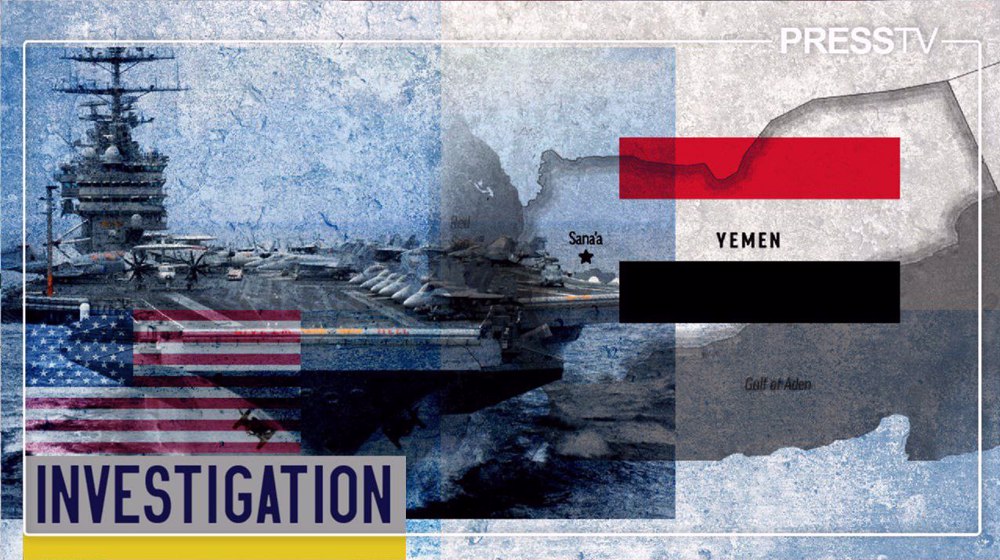
Collapsing Empire: Yemen shatters the illusion of US air power, yet again
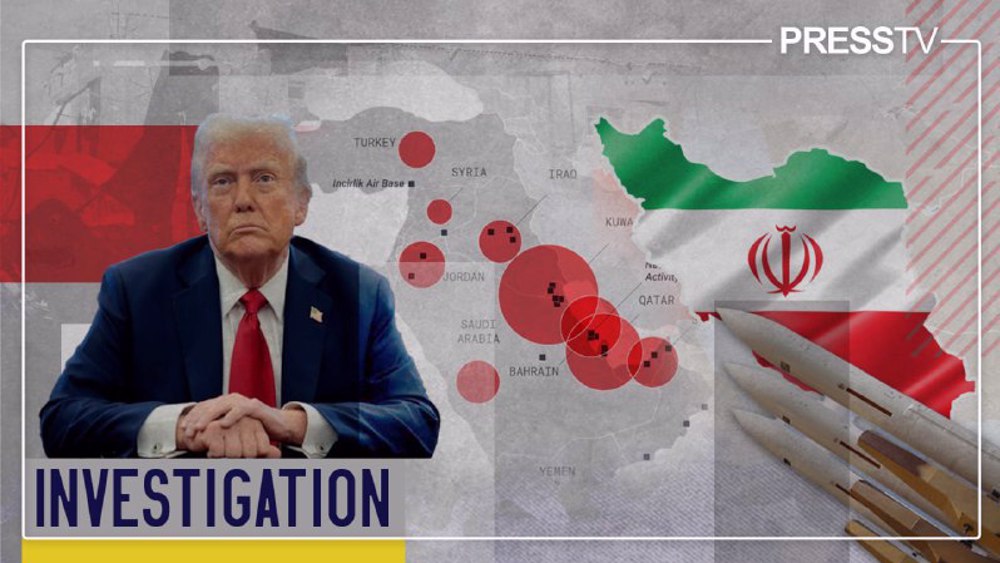
Brewing storm: Which US bases in West Asia are within Iran’s missile crosshairs?
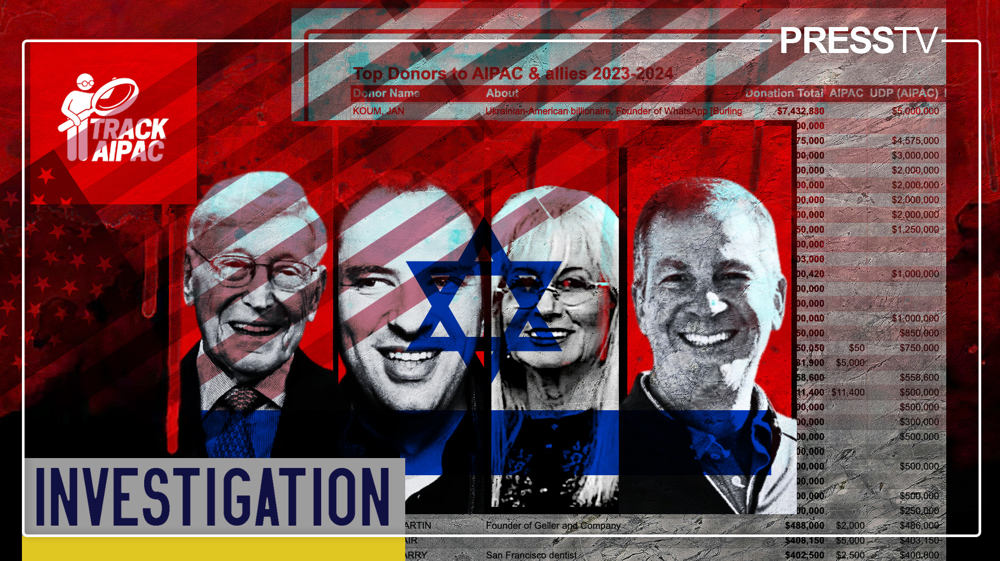
Bankrolling genocide: The biggest donors to AIPAC, leading US Zionist lobby group
US airstrikes target key educational, training center in Yemen
Al-Ahli Hospital bombing: Israel strikes last functioning north Gaza health facility
VIDEO | Press TV's news headlines
VIDEO | Paris hosts week-long pro-Palestinian rallies
US ‘Tactical Terrorism Response Team’ flags pro-Palestinian attorney at customs
VIDEO | Pro-Palestine demonstrators in UK slam BBC
VIDEO | Protesters form human chain in front of US Embassy in London
Removal of US’s oppressive sanctions one of Iranian nation’s most basic rights: First VP


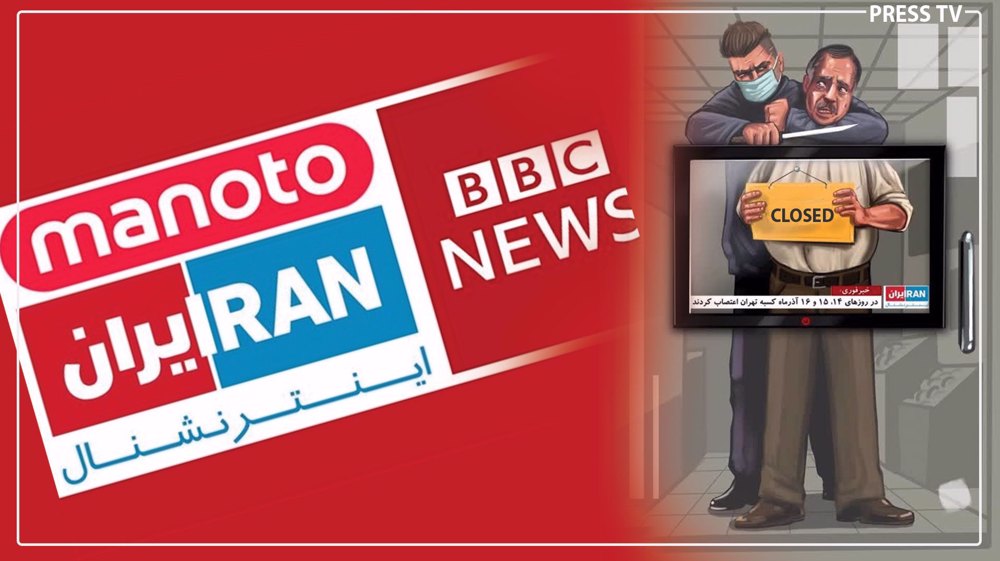



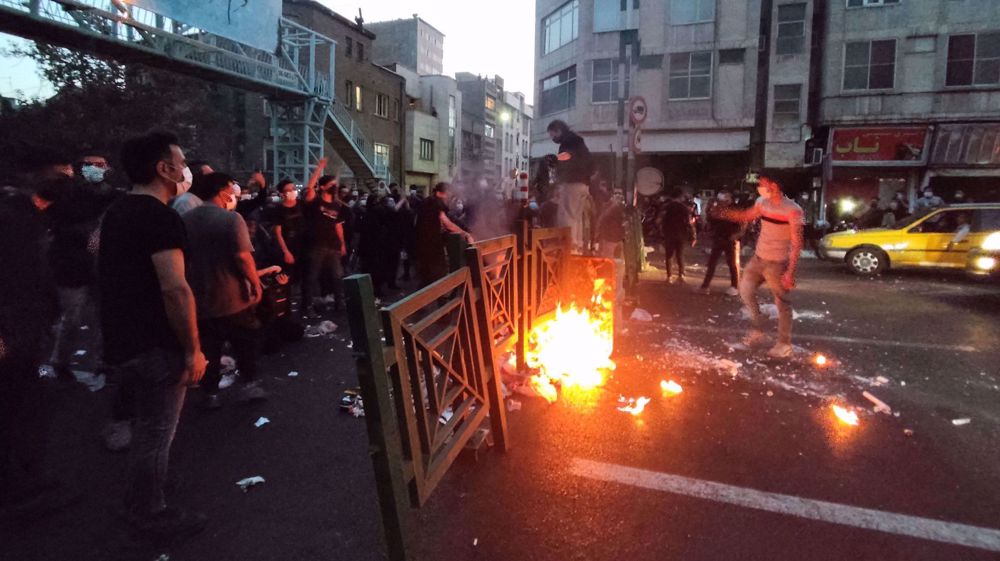
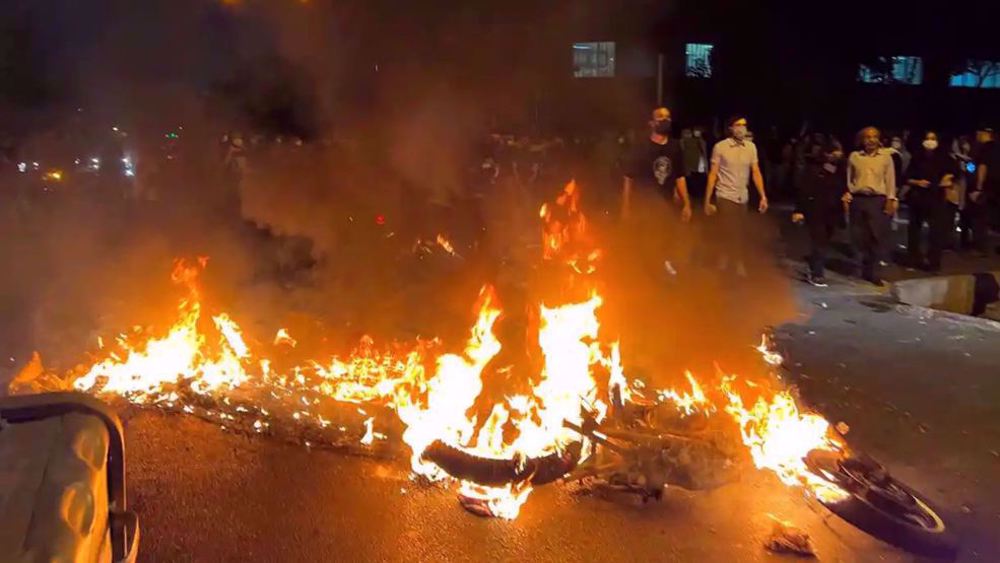
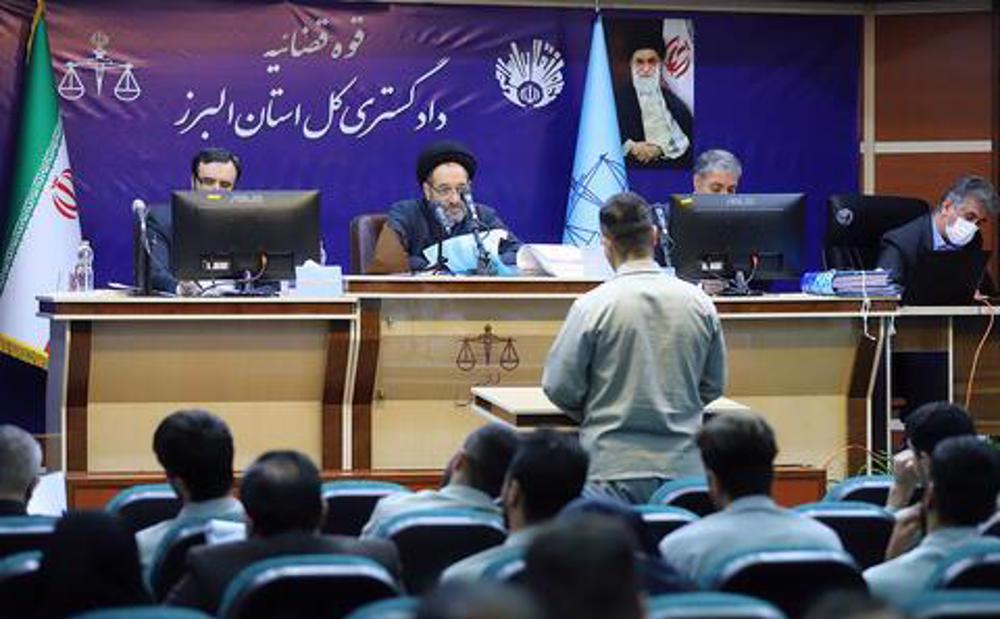
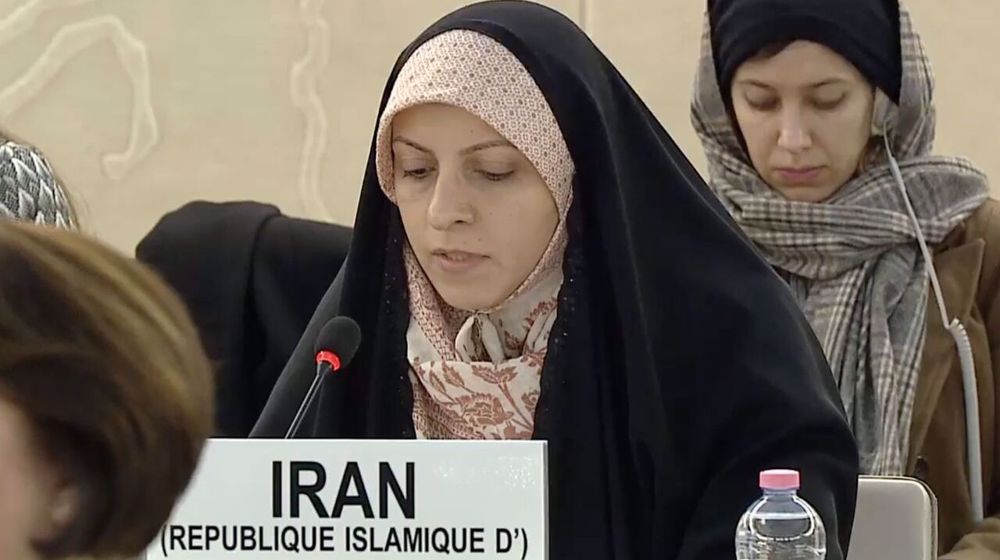
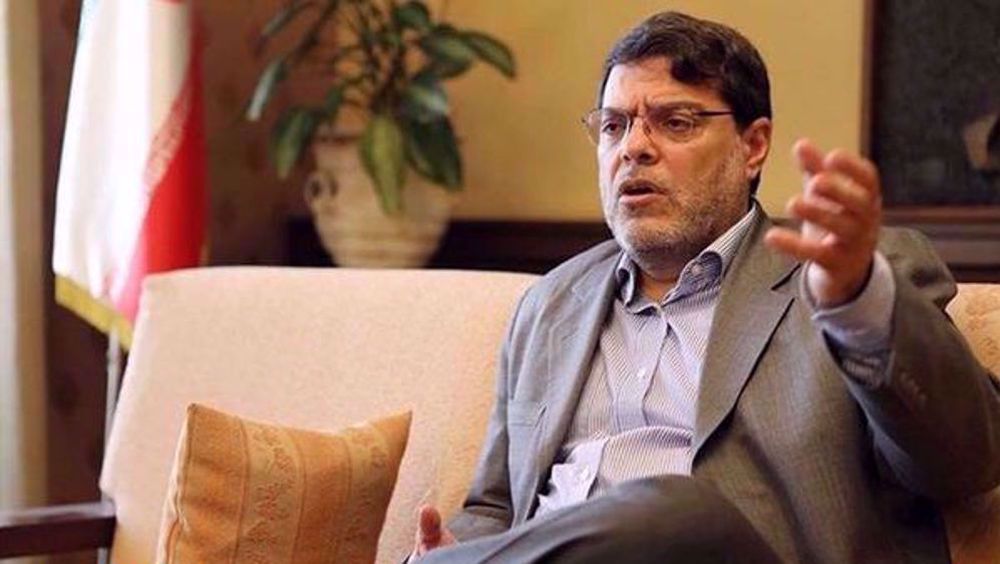

 This makes it easy to access the Press TV website
This makes it easy to access the Press TV website